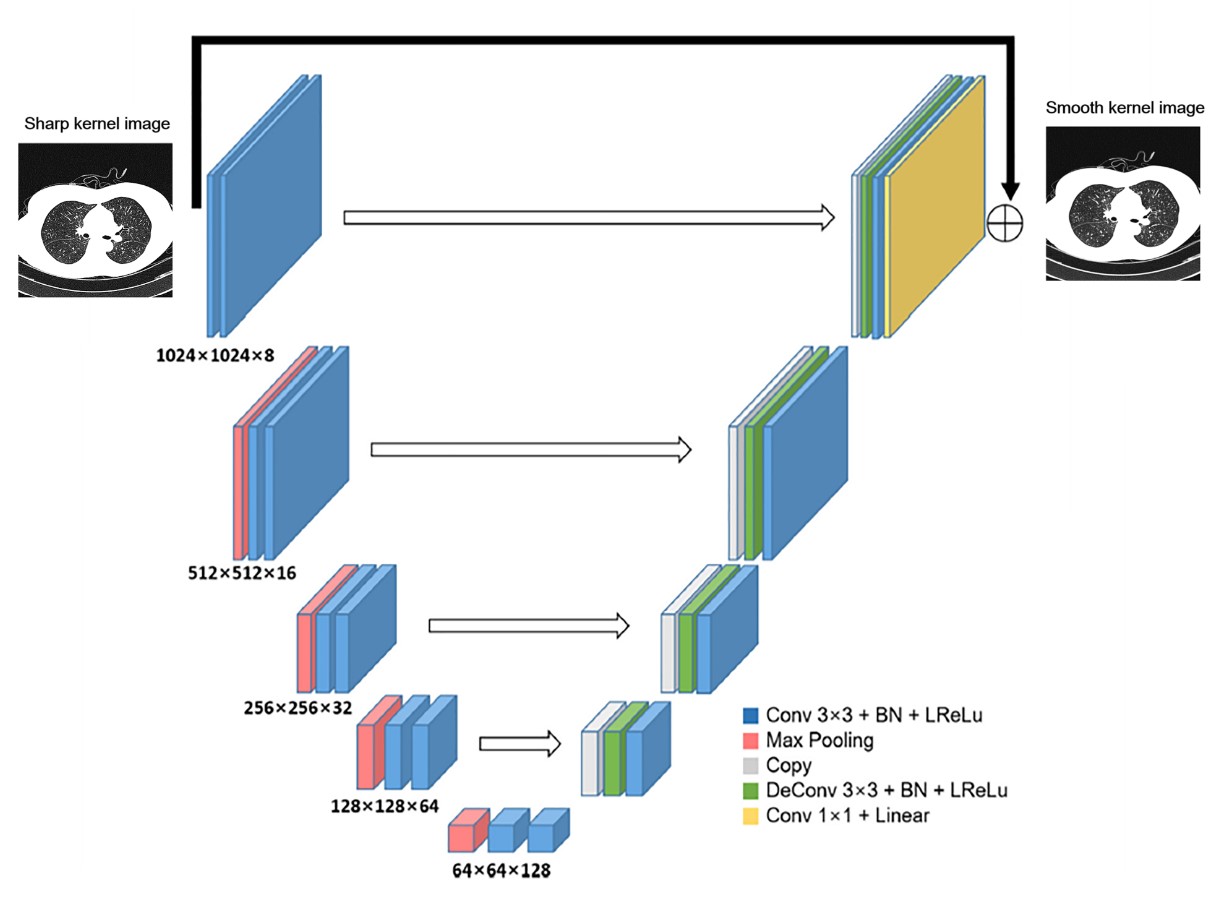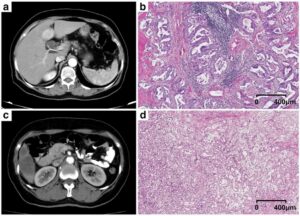This study used a sample of 131 participants who underwent low-dose computed tomography (LDCT) and standard-dose computed tomography (SDCT) to determine the effect of dose reduction and kernel selection on quantifying emphysema. The authors determined that the deep learning-based CT kernel conversation of sharp kernel in LDCT significantly reduced the variation in emphysema quantification.
Key points
- Low-dose computed tomography with smooth kernel showed adequate performance in quantifying emphysema compared with standard-dose CT.
- Emphysema quantification is affected by kernel selection and the application of a sharp kernel resulted in a significant overestimation of emphysema.
- Deep learning-based kernel normalization of sharp kernel significantly reduced variation in emphysema quantification.
Authors: So Hyeon Bak, Jong Hyo Kim, Hyeongmin Jin, Sung Ok Kwon, Bom Kim, Yoon Ki Cha & Woo Jin Kim













